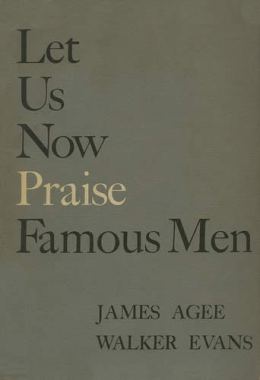
Former TIME magazine movie critic James Agee (who reviewed films, in the memorable words of writer David Thompson, “like someone who had not just viewed the movie but been in it — out with it, as if it were a girl; drinking with it; driving in the night with it”) may be best known for writing a book that sprang from a FORTUNE assignment that, ironically, never ran. In 1936, Agee and photographer Walker Evans were sent to the Deep South to document the travails of sharecropping cotton farmers, three years into Roosevelt’s New Deal.
By turns captivating and exhausting (the third sentence lasts 16 lines), Let Us Now Praise Famous Men tells the story of three families. Agee states that his mission is to “pry intimately into the lives of an undefended and appallingly damaged group of human beings,” and pry he does, but he also ruminates about poverty, farming, animals and racism, all supplemented by Evans’ stark black-and-white images.
Hardly anyone read the book on its original publication in 1941. It wasn’t until 1960, when it was reissued after Agee’s death, that it garnered recognition and its stylistic influence rubbed off on the likes of Norman Mailer and Hunter S. Thompson. In 2001 the New York Public Library declared it one of the most influential books of the 20th century.
